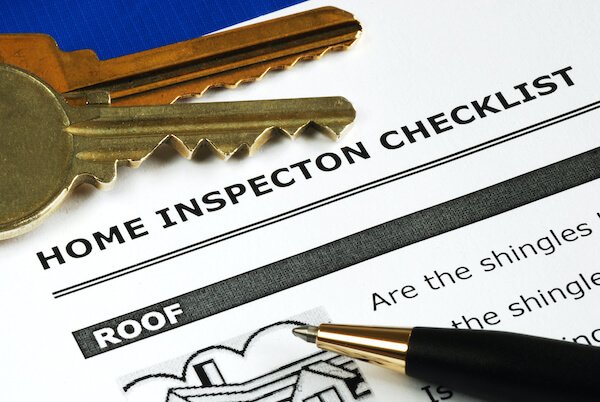When you’re buying or selling real estate, it can be hard to know how to maneuver your way through each transaction, even if you’re experienced in doing so. If you’re just started out on selling a house, you’ve got a lot to learn about how the process works, what the rules and laws are, and what to expect from other sellers, buyers, and real estate professionals. Regardless of which side you find yourself on, the most important thing for you to do is get educated about the terms and jargon that you’re going to deal with during a real estate sale. You might be familiar with some of these terms, you might think you understand some of them, and you may not know what others mean at all. So let’s take a look at 12 real estate terms you should if you’re selling a house.
12 Real Estate Terms to Know

Agent
Buying or selling a house on the open market means you’re going to need someone who understands the rules and best practices. That person is a real estate agent. It’s good to be aware of the different types. A buyer’s agent represents the person who is looking to buy property while the listing agent represents the person who is selling a property. For their services, an agent receives a commission fee, usually a percentage from the final sale price. That commission is split between the listing agent and buyer’s agent and it’s up to them to negotiate the specifics.
It is possible that one or both sides will decide not to work with an agent but it’s not advisable unless you’re a real estate expert yourself. There are many aspects to a real estate transaction on the open market that require someone with the knowledge needed to navigate them. It’s important that an agent never represents both parties in a real estate transaction. That’s a conflict of interest.
Appraisal
How do you know what the value of a piece of real estate is? An appraisal, done by a professional, helps to determine if the final sale price is an appropriate number based on the condition of the property and the current housing market. If the appraisal varies too much from the sale price, it can force the deal to be renegotiated or perhaps canceled.
A buyer (and their lender) will require an appraisal before agreeing to purchase a property. However, a seller can also get an appraisal of their own early on in the process in order to provide an unbiased value to potential buyers.
As-Is
Most homes sold on the open market require the seller to do some work, be it repairs, renovations, or working out a financial issue. However, you can also choose to sell a house “as is”, which means the seller does not intend to make any repairs or changes to the current condition of the house. If there is extensive damage or some kind of financial distress, the buyer knows that they will be taking on that responsibility by purchasing the property. Typically, an as-is house sells for less money on the open market. A real estate investor like Axess Home Buyers will often make a cash offer to purchase a house “as is” as part of their business model.
Concessions
When a seller is trying to sell their house but the buyer isn’t willing to meet their demands, they may offer a concession in order to make the deal more appealing. Concessions vary but often include closing cost help, price deductions for necessary repairs, and paid insurance to cover any potential headaches. A buyer may also make a request for concessions as part of the negotiation if they feel as though they have negotiating power. Ultimately it comes down to the market and how much both sides want to close on the property.
Contract
When you’re buying or selling real estate, the contract is the document that includes all the terms of the sale. A real estate contract usually depends on unbiased appraisal, inspection, and financing approval, amongst other things, to move forward. As soon as the buyer and seller agree on the sale, a property is considered “under contract.” However, contracts can be amended or changed after inspections in order to make good on any perceived or real concerns that came up and were previously unknown.
Closing Costs
Closing costs are any fees paid at the end of a real estate transaction. Both sides often need to pay closing costs, but the specifics depend on the state, city, and county. Common closing costs include an application fee, escrow fees, and mortgage insurance premiums. Closing costs can also be part of the negotiation, especially if you’re in a buyer’s market. Only after closing costs are fully paid can the property title be transferred.
Contingencies
Located inside a contract are contingencies. These are conditions that must be met by the buyer and seller in order for the sale to move forward as planned. Common contingencies include home appraisals, financial approval, and specific timeframes. If contingencies are not met, the buyer often has the right to opt-out of the sale without losing their earnest money deposit. The seller may also have the chance to opt-out if the buyer fails to live up to the requirements spelled out in the contract.
Earnest Money
Once the buyer and seller come to terms and go under contract, the buyer will deliver a deposit called earnest money, often one to three percent of the agreed-upon sale price. This usually goes to escrow, a third-party that keeps it safe and keeps both sides in check during the process. If the buyer decides to back out of the sale without enough cause, the seller can keep that earnest money for themselves. However, if the seller doesn’t meet their contingencies, the buyer can usually get that money back in full and walk away from the sale.
Escrow
Escrow is the third party that provides an unbiased central body that ensures both parties remain accountable to one another. Financial deposits and contract documents are usually put in escrow until the closing of the transaction. Escrow ensures that everything happens as it should. Once contracts are signed, escrow will release the funds and transfer the property title to the new owner.

Inspection
When you want to ensure that a house or property is in working condition, or the condition that is being promised, you bring in a licensed inspector to visit and document the condition. This person will document any necessary repairs needed to meet the requirements of the contract. A mortgage lender will always require an inspection before agreeing to lend money on a property. The buyer can ask the seller to cover the costs of repairs needed or for other contingencies based on the inspection results.
Mortgage
A mortgage is a loan that is secured against a real estate property, such as a house. The borrower agrees to repay the mortgage plus interest in the form of set payments, usually monthly. It’s important to note that mortgages are considered “liens against property” because if the borrower stops paying, the lender can take ownership of them. This is known as foreclosure and often includes the lender removing the borrower from the home in order to sell it.
Real Estate Investor
For many reasons, some sellers don’t want to sell their homes on the open market. It may be because the house is in disrepair, because of financial issues, or because time is an issue. In these cases, a real estate investor, otherwise known as a cash home buyer, will purchase the house from them for cash. The transaction avoids real estate agents and can often be concluded in a matter of days.
